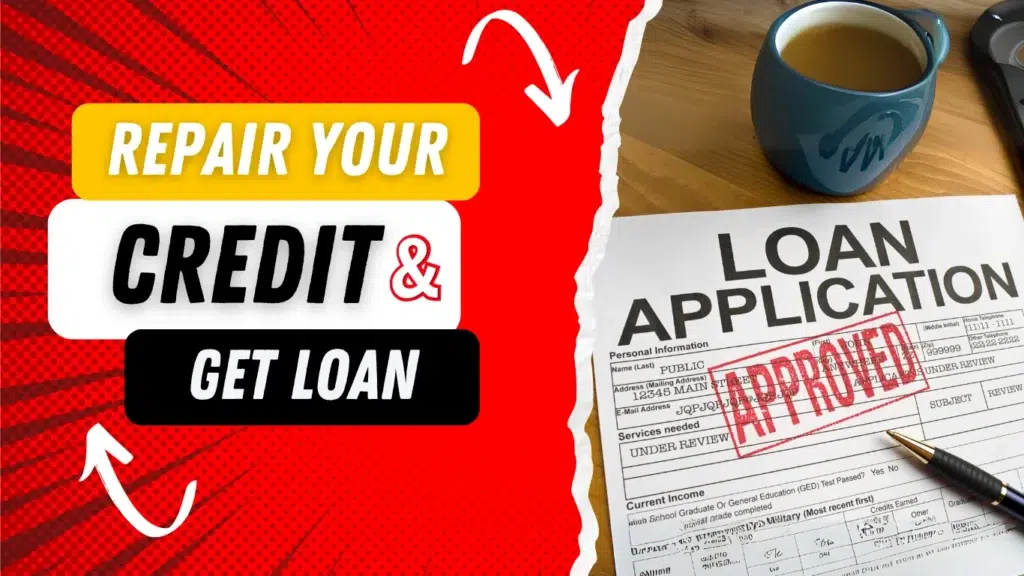Summary
Although debt settlement reduces financial burden, it can lower your credit score and hinder your application for fresh loans. A “settled” status shows up on your credit report for up to seven years because you paid less than the total. To help you better your credit, start by reviewing your credit report for errors and making a plan for loan repayment on current loans. Use your credit card sparingly; use secured credit cards wisely, and avoid requesting several loans. Like consumer durable loans, careful, limited credit use improves your score. Secured loans are easier to obtain and can restore lender confidence. Track your credit often, follow a budget, and learn smart financial techniques; stay away from overspending. Time and discipline will enable you to heal and qualify for improved credit downstream.
Introduction
Clearing a debt will provide great relief when you’re having trouble with past-due payments. It does, however, frequently affect your credit report and reduce your credit score, which makes obtaining new loans or credit cards more difficult. Still, don’t panic; your financial road doesn’t stop there. Smart preparation and appropriate behaviour over time will help you recover your credit and raise your loan eligibility. After debt settlement, this book will coach you through easy, useful actions to restore your credit score. Every action counts—from reviewing your credit score and using secured credit cards to applying for small loans and developing good payback habits. Rebuilding your credit will help you either with future fresh loans or with simply improved financial security. Let’s look at how you might seize control and recover stronger.
Step-by-Step Guide to Rebuilding Credit After Debt Settlement
Although debt settlement typically results in a negative credit score, it can provide financial relief if you are overburdened with late obligations. Once a loan displays as “settled” on your credit report, lenders could consider you a high-risk borrower. This can limit your credit card or fresh loan access for several years.
Still, one can control their financial fate. Following debt settlement, you can improve your financial profile using time, effort, and the right behaviour that repairs credit.
Understand the Impact of Debt Settlement
Learn what debt settlement does to your credit profile before acting.
What does “settled” mean?
A loan classified as “settled” means that the lender accepted less than what was originally owed. Unlike a “closed” loan, which shows full payments, “settled” implies that the borrower might not have kept their whole commitment.
This tag will stay on your credit record for up to seven years, which could lower your credit score and create questions for future lenders.
Why Credit Scores Drop After Settlement
Debt settlement reduces your credit score because it reflects incomplete repayment. The score drop will depend on the settled amount, your overall credit profile, and the number of loans or cards affected.
Start by Checking Your Credit Report
Awareness is the first step in reconstruction. From all three of the major credit agencies, obtain copies of your credit report. Search for the “settled” state, any errors, or false entries.
Dispute Inaccuracies
If you see any incorrect information, such as a debt labelled as paid off, raise a dispute with the credit bureau. Correcting these errors could immediately improve your score.
Track Existing Debts
List the loans and credit cards remaining past due. While repairing credit following debt settlement also depends on this, maintaining consistency with repayments depends on tracking.
Make Timely Payments Going Forward
Making all future payments on time will enable you most powerfully to rebuild your credit. Regular payments on an old credit card or an energy bill show your current financial understanding.
Set Up Auto Payments
Set up automatic credit card, EMIs, and other bill payments to avoid missing due dates. Your credit could be hurt even by a little delay.
Keep Credit Utilisation Low
If you use credit cards, strive to keep a balance substantially below the maximum. A low credit use ratio indicates good credit conduct that, over time, increases your score.
Apply for a Secured Credit Card
Should your credit history prevent you from getting a traditional credit card, a secured credit card can prove to be useful.
How a Secured Card Works
A predetermined deposit backs a secured card; collateral does the same. Usually, the credit limit matches exactly the deposit. Gradually raising your credit score calls for both sensible card use and prompt debt payment.
Use It Smartly
Before the due date, pay off the whole amount; use the secured card for small purchases. This shows lenders your wise credit control.
Avoid Multiple Loan Applications
Once you settle, particularly if you need money, you could find yourself tempted to apply for more loans. Applying for many loans at once, however, will swiftly lower your score even further.
Choose Wisely
Instead of applying everywhere, research lenders who credit people with low scores or those ready to provide loans depending on income and collateral.
Wait Until Your Score Improves
Increasing waiting time and regular financial practices will raise your chances of qualifying for a loan with better terms. Work on improving your profile before you seek new credit.
Build a Positive Credit Mix
Combining credit types—such as a consumer durable loan, a small personal loan, or a credit card—helps your score rise little by little.
Start Small
Perhaps you would choose a small-ticket loan with straightforward EMIs. Making regular repayments not only improves the history on your credit record but also enables lenders to regain confidence.
Use Credit Cautiously
Keep your credit limit under control—not too far pushed. Take just what you can easily afford. More important than imposing large restrictions is building a solid record of repayment.
Monitor Your Credit Score Regularly
See your credit score in many months from now. Monitoring your progress motivates you and alerts you to any new issues.
Use Free Credit Score Services
Many financial websites and programs offer free credit score checks. Plan reminders to check your score three months from now and record changes or reductions.
Watch for New Remarks
Make sure old notes like “settled” are corrected or erased after the period expires. You can also petition the bureau to have several years of steady good credit taken off.
Practice Financial Discipline
Rebuilding credit after a settlement goes beyond tools and techniques. It also involves developing new behaviours to enable you to remain financially consistent over time.
Create a Budget and Stick to It
Track your income and expenses very closely. Avoid overspending and keep emergency cash on hand to cover unplanned expenses.
Avoid Taking on Unnecessary Debt
Once your score starts to rise, lenders might start assigning credit to you. Be discriminating; take loans or cards just for a legitimate need.
Top 5 Tips to Improve Loan Eligibility After Debt Settlement
Debt settlement can offer a much-needed respite when you can’t completely pay back your loans. It makes it more difficult to obtain new loans, though, since it also reduces your credit score and leaves a negative notation on your credit report. It’s not impossible, even if getting approved following the settlement is more challenging.
Should you intend to seek credit once again, it is vital to follow the correct procedures to increase loan eligibility following debt settlement. These five doable suggestions can assist you in increasing your chances of loan approval and help restore your creditworthiness.
Maintain a Clean Credit Record After Settlement
How lenders see your profile mostly depends on your financial behaviour following the debt settlement.
Make timely payments on the remaining credit.
If you currently carry credit cards or loans, make sure all EMIs and payments are paid on or before the due date. Among the most crucial elements in your credit score is payment history.
Avoid Missing or Skipping EMIs
Your credit record suffers even with one missing payment. Use payment reminders or auto-debit choices to maintain regularity and rebuild lender confidence.
Keep Accounts Active
Closing your credit card or loan accounts shortly after settlement could lower your credit mix and age. Show responsible use by keeping at least one current and properly maintained account.
Rebuild Credit with Small and Secure Credit Products
While it’s tough to get a sizable loan right after settlement, you can start small and steadily rebuild your record.
Use a Secured Credit Card
Easier to obtain with a limited credit history, secured credit cards are backed by a fixed deposit. Timeliness of repayment and responsible use will help raise your score.
Consider a Small Consumer Durable Loan
Apply for a low-risk credit product—a loan for a home appliance, laptop, or mobile phone. These loans enable a fresh payback record and are simpler to handle.
Do Not Overuse Available Credit
Use your credit sparingly; keep your ratio less than half of your allowed amount. This demonstrates discipline and lowers your risk profile from a lender’s perspective.
Monitor and Improve Your Credit Report
Regular credit report surveillance is crucial to increase loan eligibility following debt settlement. It lets you fix problems and track improvement.
Get Your Credit Report from Multiple Bureaus
Different credit bureaus could record somewhat different data and scores. To make sure your records are current, review reports from all main bureaus.
Dispute Any Incorrect Entries
Ask the bureau to challenge a completely paid loan that still shows “settled” or “overdue.” Correcting these records will raise your score.
Track Credit Score Improvement
Use credit monitoring tools or financial applications with monthly score updates. This keeps you on target and guides your choices.
Increase Your Income and Show Stability
Lenders evaluate your present financial status as well as your credit record. Changing your financial practices and income will help you to appeal more as a borrower.
Show Proof of Stable Employment
Try to remain in your present position for a consistent length of time if you changed jobs following debt settlement. A consistent employment history helps you to project less risk.
Declare Additional Sources of Income
Your ability to repay may be raised by freelancing, part-time employment, or rental income. To raise your eligibility, submit accurate documentation when seeking a loan.
Build Emergency Savings
Having an emergency fund shows lenders that you are more ready to face upcoming financial difficulties and less dependent on loans.
Avoid Aggressive Loan Applications and Choose Wisely
Many loan applicants begin to apply to several lenders, hoping someone will approve their loan. This approach can backfire and harm your credit profile even further.
Apply for Loans Selectively
Every loan application results in a credit report hard inquiry. Too many questions in a short time point to financial desperation. Apply only where your eligibility meets minimum standards.
Seek out lenders providing credit to low-score borrowers.
A few NBFCs and internet lenders focus on providing loans to clients with low credit scores. These lenders allow rebuilding your credit, even if their interest rates are higher. higher
Wait and Plan Strategically
If your credit score is rising gradually, think about waiting a few more months before seeking a significant loan. Approval and interest rates can be greatly changed by a somewhat higher score.
How to Use a Secured Loan to Rebuild Your Credit After Settlement
Many borrowers deal with ruined credit scores and less trust from lenders once they have paid off a loan. A loan settlement shows partial repayment, which could show on your credit report for years. Getting authorised for credit cards or fresh loans gets tough during this time.
Still, one sure approach to rebuild your creditworthiness is with secured loans following debt settlement. Collateral supports these loans; thus, even with a bad credit record, lenders are more ready to approve your application.
What Is a Secured Loan?
A secured loan is one kind of loan whereby the borrower pledges an asset as security. By lowering the lender’s risk, this collateral lets them issue loans for those with poor credit.
Common Types of Secured Loans
- Loan instead of a fixed deposit
- Loan against a gold item
- Loan for real estate
- Loan against an insurance policy or securities
For borrowers with damaged credit, secured loans are more easily obtained than unsecured ones, as the lender owns a claim on the promised asset in case of default.
Why Choose a Secured Loan After Debt Settlement?
After a settlement, secured loans might significantly help to raise your credit score. For restoring your credit, they have many benefits over unsecured loans.
Easier Approval
Though your credit score is low, lenders are more likely to approve secured loans. The collateral lowers their risk; thus, they are more adaptable with approvals.
Lower Interest Rates
Usually, secured loans have lower interest rates than unsecured ones. This brings them more under control and makes it less likely that they may cause payment lag once more.
Opportunity to Rebuild Credit
On a secured loan, regular, timely payments produce a fresh record of good credit activity. This shows that you are financially responsible and enables your credit score to rise with time.
How to Use a Secured Loan Effectively
Not enough is just obtaining a secured loan. Your management of it will decide whether it damages your credit more or helps it to be rebuilt.
Choose the Right Type of Secured Loan
Choose a secured loan that fits your present goals and financial situation. For example:
- Given a fixed deposit, think about borrowing against it.
- Should you own gold jewellery, a gold loan is a quick and simple solution.
- Verify whether your insurance policies qualify for loans, if you have any.
Unless you are sure you will be able to pay back the loan on schedule, avoid leveraging real estate or other assets.
Borrow a Small Amount First
Start with a low loan balance you can easily pay back. The objective is not to borrow substantially but rather to show over time consistent payback habits.
Repay on Time Without Fail
Rebuilding your credit mostly depends on timely EMI payments. Create automatic payments or reminders to help you not miss deadlines.
Track and Monitor Your Credit Progress
Regular credit report monitoring is crucial once you have a secured loan and are beginning repayments.
Check Credit Reports for Updates
Most lenders feed loan activity into credit bureaus. Your report should show fresh positive entries following a few months of regular payments. This lessens the bad effects of the prior settlement.
Dispute Any Errors
Credit reports may have inaccurate information. Verify accurate recording of the new loan and its repayment schedule. Should you discover any mistakes, file a dispute with the agency to get them corrected.
Combine with Other Positive Credit Behaviours
In conjunction with other financial practices, using secured loans following debt settlement makes the most sense.
Maintain Low Credit Utilisation
If you own credit cards, use them very sparingly below the limit. Low use suggests controlled credit behaviour and raises your credit score.
Avoid New Defaults or Settlements
One should not repeat past mistakes even as rebuilding starts. Steer clear of dangerous borrowing and, wherever you can, pay off debt.
Create a Monthly Budget
Monitoring your income and expenses can help you make sure your loan EMIs fit comfortably within your means. Steer clear of borrowing for non-building needs during the reconstruction process.
Things to Keep in Mind Before Taking a Secured Loan
Although secured loans have their uses, one should use them carefully. Deeper financial problems and loss of the promised asset can result from mismanagement.
Understand the Loan Terms
Review the loan agreement attentively. Find out the lender’s policy on collateral seizure should a default arise, as well as the interest rate, loan term, and late payment penalties.
Only Borrow What You Can Repay
You have assets at risk; hence, never overborrow. Rebuilding your credit is the goal, not adding an unneeded financial burden.
Choose a Trusted Lender
Always choose a respected bank or NBFC. Beware of unofficial lenders or schemes that seem too good to be true.
Conclusion
Rebuilding your credit while paying debt is quite realistic, even if it takes time and calls for smart financial practices. If you scan your report, fix errors, pay bills on time, and use secured types of credit responsibly over time, your credit score will increase. Try to keep a decent mix of credit instead of applying for too many loans at once. With this approach, limit credit use, use secured loans only, and keep a close eye. More essential, practice financial discipline; live within your means, save money in case of crisis, and borrow only enough to pay back. If you put persistent effort, your creditworthiness will grow, and lending institutions will find you trustworthy once more. The starting point, but not a goal, is debt settlement. With the advice below, keep determined, and you will master your money tomorrow, one step at a time.
FAQ’s
Ans: A settled loan remains visible in your credit file for up to seven years. It can decrease your credit score and your chances of obtaining new credit over this timeframe.
Ans: You are quite qualified for a secured credit card. Paid on promptly and used wisely, it calls for a deposit and helps you repair your credit.
Ans: Keep credit use low, make all payments on time, avoid new debt, and routinely check your credit report for errors.
Ans: Secured loans are indeed more easily obtained and offer lower interest rates. Making regular payments to them shows lenders you have financial accountability once again.













